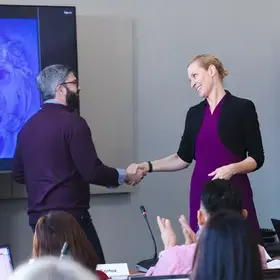In a must-read Q&A with bioethics student Michael Reaves in Voices in Bioethics, Dr. Marcia Angell offers up her opinion on what Obamacare has done for the American people, and why she believes it's not sustainable:
"It continues us in the same direction because the two drivers of high costs and cost inflation were not touched by it. Those two drivers are, first of all, the profit-driven delivery system – the providers. Hospitals are either for-profit or behave as though they’re for-profit. All of the for-profit imaging centers -- for example, outpatient facilities, clinics, the specialists and super specialists – get to perform as many high-cost procedures as they want; if they’re, say, a cardiologist, they can make a couple of million dollars a year. Doctors vary in terms of their income; super specialists, in turn, perform high-tech procedures and get a lot of money for it. Providers are profit driven, and that’s probably the biggest driver of increasing costs. They charge whatever the market will bear, and it will bear a lot with third-party payers. The second driver is the private insurance industry, and the hundreds of private insurance companies that compete by avoiding sick people and refusing claims. So those two things together have made the US health-care system extraordinarily expensive and inflationary compared with other countries.
So what did Obamacare do? It continued that. The private insurance industry got millions of new customers because people were required to enter a treacherous market and buy insurance. Obamacare did nothing about the profit-driven delivery system. That is still in place.
Instead, Obamacare expanded coverage, but at a cost that simply cannot be afforded. These new patients who now have insurance cost a lot of money, so what you’re seeing is the insurance slowly being hollowed out: the deductibles and co-payments are going up, so you have people who, yes, now have insurance, who weren’t insured before, but can’t afford to use it because the deductible is so high or it doesn’t cover everything. So you’re seeing more people with insurance, but the insurance is not as good. Sooner or later something is going to have to happen there."
Read the full piece at Voices in Bioethics.


